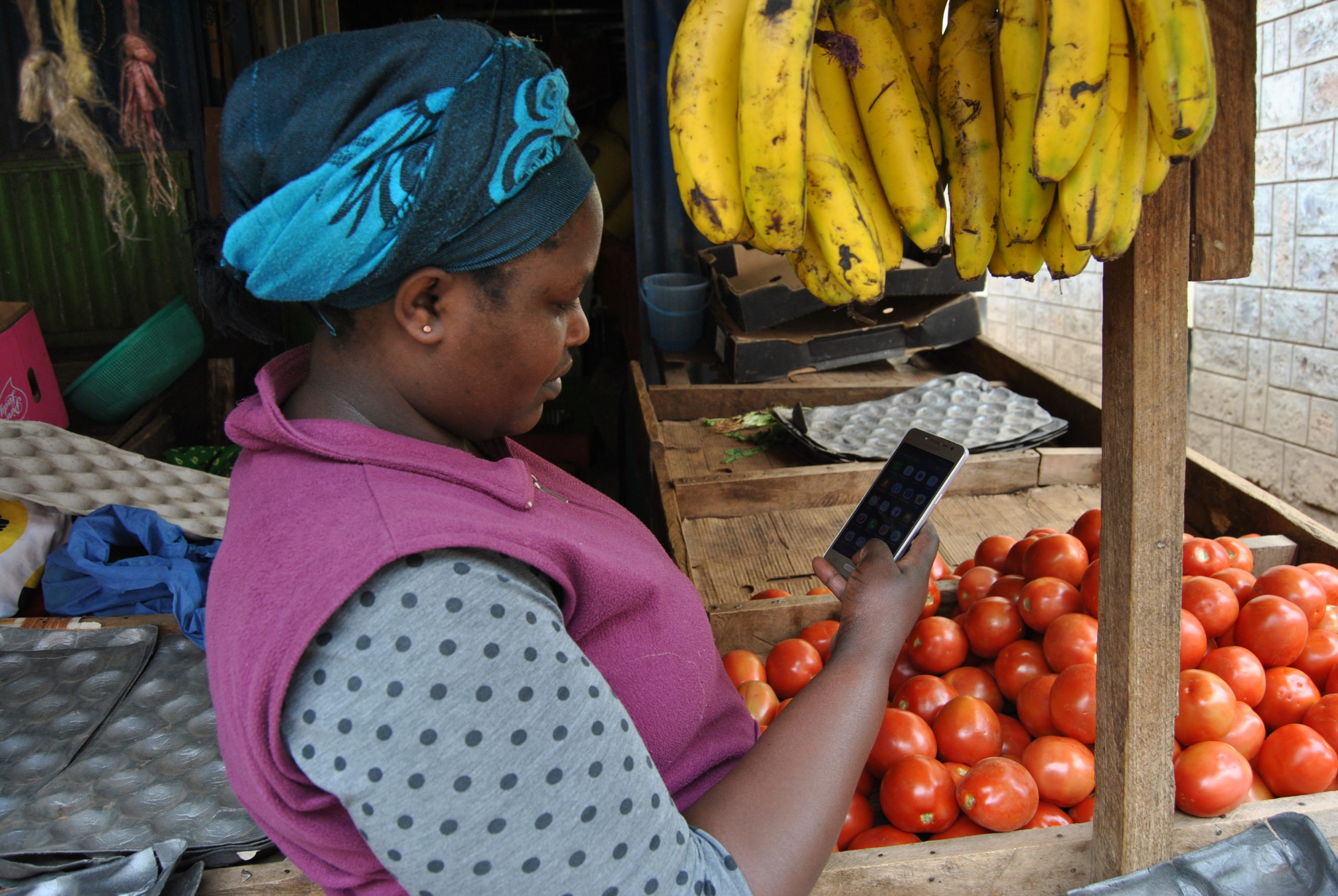The taxes imposed by the government have only made this worse, as businesses pass down costs to their customers so that they can stay afloat. Among those taxed include telecommunication costs, internet use, and fuel. Fuel prices have also affected liquefied petroleum gas (LPG) used by many for cooking in their households.
Jane Thiga runs a greengrocery in Roysambu area in Nairobi and says that it has become expensive for her to place orders for fresh farm produce through phone calls. As such, she has to hike the prices of supplies by a small margin so it can cover these costs and also those of transport as fuel prices have also caused a hike in fares.
As she cleans up her tomatoes that she has picked up from the market in the morning and readies them for sale throughout the day and most especially in the evening as those who went to the city for work return home, Thiga, however, says that most of her customers are now complaining as they buy, while others have reduced the amount of food they are buying into their households.

”Many are saying that the cost of living has gone up and they have to adjust accordingly. Some have even moved their families back upcountry to cut down on costs while some lost jobs during the pandemic and decided to return to their rural homes altogether,” she says.
Mobile phone loans were not left out as well by the government as they were also taxed. This also affected Thiga’s business because as she says, she normally takes a mobile loan to support her business.
“In most cases, customers take foodstuff on credit, and to maintain them, I normally take a quick mobile loan to bridge it,” she says.
In the Finance Bill 2021 that took effect on July 1st, the government imposed a 20% excise duty on data and calls, making it more expensive. The Bill also proposed a hike in fuel prices, affecting LPG gas prices in the country.
Samuel Juma is a gas vendor in Roysambu, and says that since the price of cooking gas went up, customers either buying or refilling cylinders have declined, with most of them resorting to using other forms of energy such as charcoal or paraffin stoves.
”There is nothing we can do. Most people have resorted to using other forms of charcoal, while others decide to eat in restaurants rather than refill their gas cylinders and use it to cook at home,” Juma says.

But, he says, those who heard about the hike in prices earlier are coming to buy, and that is what has kept them in business so far.
“Compared to last year when we were refilling a 6kg gas for Ksh850, the highest now goes for Ksh1300, noting an increase of Ksh450. This is too much, given also that every other item in the market is increasing, making life more difficult for the common citizens in this country,” Juma says.

Not to be left out was also the price of fuel that has been on a steady increase this year in Kenya, hitting the historical highest mark in decades.
At the moment, petrol sells at Ksh127.1 in Nairobi and could go to Ksh130 in other parts of the country, depending on the cost of transportation.
William Kimani, a car owner who lives in Kiambu, in the city outskirts says that he has had to use a matatu (public service vehicle) to work on several occasions this year because he couldn’t raise money to buy fuel for his private car.

“There is a time last year when I bought fuel for Ksh83, with the government telling us that it was a relaxation of tax to cushion us from the shocks of the COVID-19 pandemic. But look right now, the effects of the same pandemic are now biting but the same government is on a tax Christmas. They are celebrating our agony,” Kimani says.
In April, Kenyans trolled the International Monetary Fund (IMF) for loaning Kenya without a payback plan, while the East African nation’s Chinese loan and debt continued to burgeon.
Kimani says that he is aware that the government is hiking taxes in an attempt to raise money to pay back the loans.
“This government has been too greedy, never quenching its thirst for loans from almost all corners of the world, and now see how we are struggling. What will our future generations look like if we cannot put food on our children’s table nor pay their school fees?” he asks.

Kimani also continues to say that the problem would not be in borrowing, but rather in how the money borrowed is managed.
“We wouldn’t have a problem with the borrowing. Borrowing is good, but only if the same money is managed well to give value to the public. But now, the problem in Kenya is that corruption is taking away all this money. The other day you heard reports saying that we are losing 2 billion Shillings to corruption daily. And yet our president doesn’t know what to do with it. In fact, the other day he asked what we want him to do. We are doomed,” Kimani concludes.

